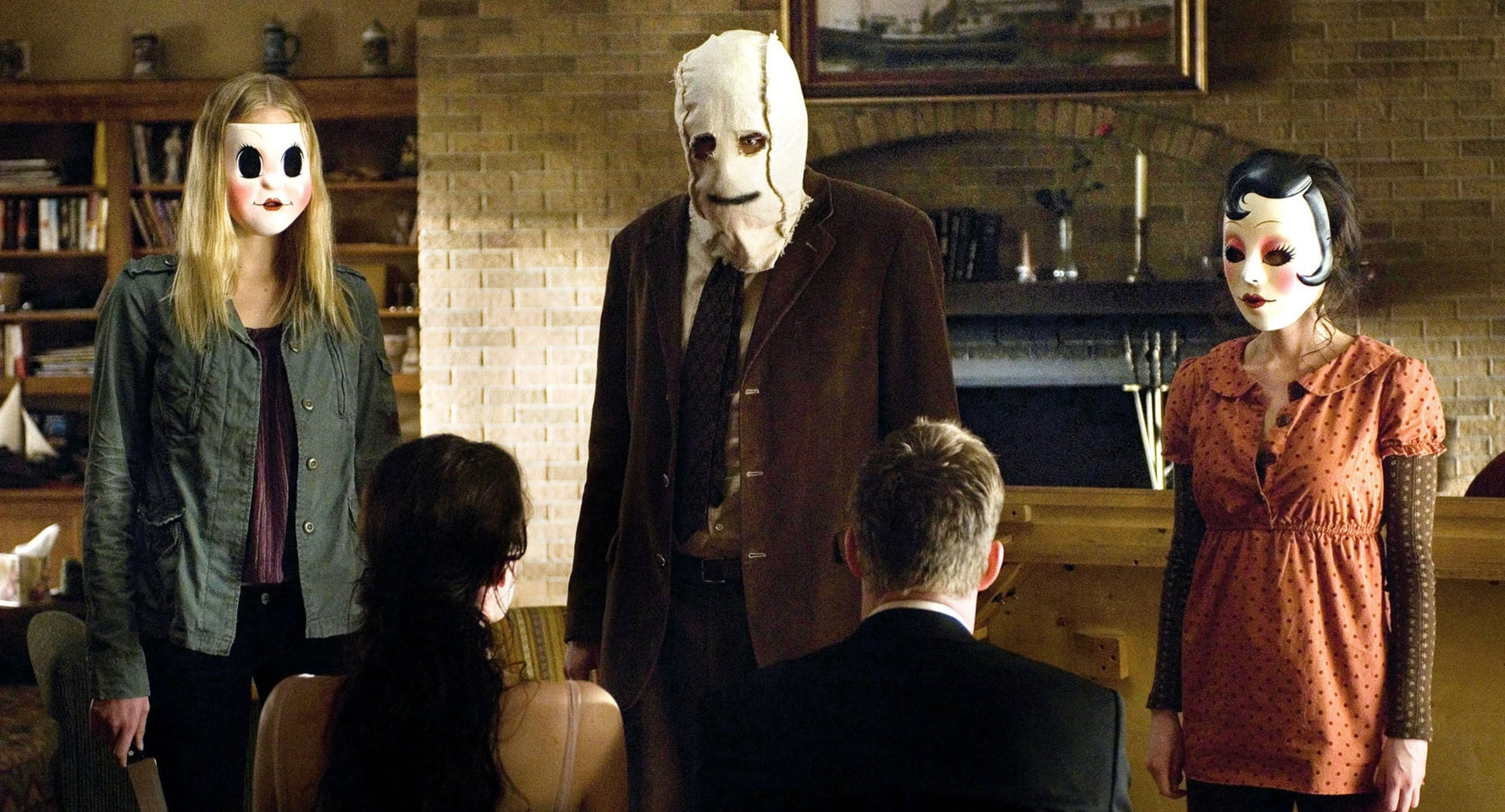The Strangers – Film Review
Published March 12, 2024

There is a certain level of simplicity on display in Bryan Bertino‘s The Strangers that, while not one of the best horror films you can find out there by a large margin, makes it instantly memorable. It’s an extremely breezy watch clocking in at just eighty-five minutes including credits, and most of that run-time is spent with our lead characters Kristen and James wandering around their house, trying their best to avoid these intruders who may be lurking around every corner. Bertino’s direction ensures that you always feel as though this couple can be attacked and hurt at any moment.
And while it’s not one of the most genre-defining movies for horror, the film has certainly carved its place in the genre as a classic for many fans. It’s a movie that rides heavily on the primal fear of being invaded in one’s own supposed safe haven – one’s home. Starring Liv Tyler as Kristen McKay and Scott Speedman as James Hoyt, the film endeavors to convey a night of terror for a young couple tormented by three masked strangers. At its core, The Strangers serves as a harrowing narrative on the randomness of violence, pushing psychological boundaries more than physical ones.
The Strangers does not boast a complicated plot; its simplicity is the cornerstone upon which the tension builds. The premise is straightforward: a couple isolated in a remote vacation home, grappling with the strain in their relationship, find themselves the target of three masked assailants. The plot derives much of its inspiration from true events, notably the Manson family murders, adding a layer of realism to the film’s atmosphere that’s unnervingly palpable. Bryan Bertino’s direction maintains a consistent sense of dread throughout, allowing the fear of the unknown to seep through the long, still shots and the silence that permeates the cabin. The minimalist approach works to the film’s advantage, ensuring that the audience’s imagination fills in the blanks, often amplifying the suspense.
However, the film struggles to maintain this tension with its pacing and some directorial choices. The characters’ decisions, while somewhat understandable given their panic-stricken state, often border on the clichéd and nonsensical, detracting from the overall intelligence of the script. Bertino’s reliance on the jump scare tactic becomes predictable, undermining the psychological horror aspect that could have been the film’s strongest suit.
The film leans heavily on its two leads, and Liv Tyler and Scott Speedman deliver commendable performances given the emotional range their roles demand. Tyler, in particular, embodies the vulnerability and terror of her character, Kristen, with a poignant depth. Her portrayal of fear is palpable, resonating with the viewer’s own fears of vulnerability and invasion. Speedman’s portrayal of James, while slightly overshadowed, provides a necessary foil to Kristen’s character, grounding the story in a tangible emotional reality.
However, the antagonists, while chilling in their silent menace, lack depth beyond their roles as mere harbingers of chaos. The decision to keep their motives obscured adds to the film’s chilling premise – the idea that violence can be random and senseless. Yet, this also leaves the villains feeling somewhat one-dimensional and ultimately less memorable than they could have been.
The cinematography, helmed by Peter Sova, adeptly contributes to the film’s atmosphere. The use of shadow and light, the unsettling stillness, and the voyeuristic long takes heighten the sense of intrusion. These visual choices skillfully mirror the film’s themes of exposure and vulnerability. The sound design complements this perfectly, utilizing silence as a tool rather than a placeholder, punctuated by sounds that cut sharply through the tension.
However, the film occasionally falls prey to the overuse of conventional horror tropes, which can dilute the otherwise meticulously crafted atmosphere. While the aesthetic and auditory elements excel in isolation, their repetitive deployment sometimes leads the film into the realm of the predictable.
At its best, The Strangers excels in exploring themes of random violence and the fragility of perceived safety. It probes the terror of anonymity and the fear that comes not from knowing too much, but too little. The existential dread of facing a motiveless evil, one that chooses its victims not for who they are but merely because they were home, is perhaps the film’s most haunting aspect.
Yet, the film’s potential for deeper commentary feels underexploited. The strangers’ lack of clear motive is initially intriguing but ultimately leaves the narrative feeling somewhat hollow. The potential for a more nuanced exploration of fear, violence, and survival under duress is evident but remains superficially examined.
The Strangers is a film that polarizes; it’s a piece that succeeds remarkably in crafting moments of intense fear and suspense but falls short in sustaining its own momentum due to a reliance on genre clichés and a lack of character depth. The film excels in atmospheric tension and boasts strong performances from its leads, particularly Liv Tyler, whose portrayal of Kristen is both heartfelt and terrifying.
